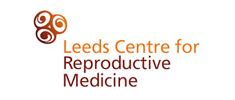Fertility Education
In 2016, I set up a national fertility health education programme, to tackle the lack of knowledge about fertility and reproductive health in the UK. This has led to the formation of The Fertility Education Initiative, which is a special interest group of the British Fertility Society. I continue to chair this group and we have developed both a website (www.fertilityed.uk) and a series of resources to education young people and individuals of reproductive age about their fertility.
Everyday in clinics across the UK, myself and colleagues see an increasing number of patients who do not know that natural fertility declines with age.
Infertility is a devastating medical and emotional experience and we want to help these patients as best we can. However, we also want people to have the knowledge about fertility and reproductive health at an earlier stage in their lives, so they can make their own informed choice about the right time to have a family, if that is what they want to do.
The first in a series of animations was launched at Fertility 2019. ‘Your Fertility Matters’ aims to explain the basics of male and female fertility to teens, as well as helping them understand factors that can affect natural fertility.
The Fertility Health Task Force is a group of senior representatives from health, education and government, as well as young people, who are implementing a programme of better education about fertility and reproductive health, amongst young people, their parents, health professionals and teachers.
The Task Force is led by myself and is a special interest group of the British Fertility Society (BFS), which I Chair, in close partnership with the Royal College of Obstetricians and Gynaecologists (RCOG) and the Faculty of Sexual and Reproductive Health (FSRH).
Our first task was to organise a conference where key speakers from the UK and overseas came together for the first time to debate and discuss issues relating to fertility education. Watch our video and read more about the summit event here.
See the full list of task force members here.
Professor Adam Balen, Chair British Fertility Society (Chair)
Annette Ashley, Manager of Policy & Public Affairs, RCOG
Kate Brian, Regional Organiser, Infertility Network UK
Jennifer Dhingra, Externals Director, Sexpression. Grace Dugdale, Balance Fertility
Andrea Duncan, Team leader Screening and Sexual Health, Dept of Health
Lucy Emmerson, Coordinator, Sex Education Forum
Professor Joyce Harper, Professor of Embryology, IVF & Reproductive Genetics, UCL Institute for Women’s Health
Emma Gilgunn-Jones, Director of Media and Public Relations, RCOG
Bola Grace, PhD Researcher, UCL Institute for Women’s Health
Dr Kate Guthrie, Sexual & Reproductive Health, Public Health England
Alison Hadley, Director, Teenage Pregnancy Knowledge Exchange
Dr Jenny Heathcote, Fellow Faculty for Sexual and Reproductive Health
Fiona Kisby-Littleton, Teacher and Researcher, UCL Institute of Education
Clare Murphy, Director of External Affairs, British Pregnancy Advisory Service
Professor Geeta Narguund
Professor Lesley Regan, Vice President Strategic Affairs, RCOG
Naomi Shephard, Brook
Professor Judith Stephenson, Professor in Sexual and Reproductive Health, UCL Institute for Women’s Health
Jane Stewart, Hon Secretary, British Fertility Society
Harry Walker, Policy Manager, Faculty for Sexual and Reproductive Health
Chris Wilkinson, President, Faculty for Sexual and Reproductive Health
Fertility Health Summit: Choice Not Chance
Fertility Health Summit: Choice not Chance from RCOG on Vimeo.
In April 2016 the Fertility Health Summit: Choice Not Chance was held at the Royal College of Obstetricians and Gynaecologists in London. The primary aim of this event was to raise national awareness about the need to improve sex and relationship education for young people in the UK.
The event was the start of a much larger, three year programme and included 13 high-level presentations by leading UK and overseas professionals in the field, as well as a representative group of young people.
As far as I’m aware it is the first time that such a group has come together to discuss this important subject and I am really grateful to everyone for their contributions on the day.
Read a summary of the presentations here.
Our aim is very simple:
To ensure that young people in the UK have a greater understanding and awareness of fertility and reproductive health, so they can make an informed choice about their own fertility journey, or others they have an impact on.
Facts about Fertility
To put the Fertility Health Education programme in context, here is some national UK data:
- More women in the UK are now having children over the age of 35 than under the age of 25.
- For the first time, over 50% of babies born in the UK are to women over 30.
- Fertility declines progressively through life and many women are choosing to delay trying for a family until their mid- to late thirties, when fertility is more rapidly declining.
- In the UK 20% of women will never have had a child, which is twice the percentage of their mothers’ generation. There are many complex socio and economic reasons for this. A national survey of 1000 16-24 year olds (male and female) was commissioned specifically for the Fertility Health Task Force (FHTF). The key findings showed worrying gaps in knowledge about fertility and reproductive health:
- Around 80% of both sexes believe women’s fertility only starts to decline after the age of 35, and a quarter of boys think women’s fertility starts to decline after the age of 40, compared with 16% of girls.
- Two-thirds of those surveyed thought a man’s fertility only starts declining after the age of 40, with a third believing it declined until after 50.
While the decline in fertility is less dramatic for men, fertility rates for both sexes actually decline gradually from the late 20s, and can be affected by genetic and environmental factors such as smoking, obesity and nutrition.
- 94% of those who did not already have them said they would like to have children in the future.
- Of those who said they wanted children in the future, three-quarters of girls (76%) and two-thirds of boys (64%) said they would like to have children before they are 30.
- The vast majority of young people – around 9 in 10 – are aware that women are most fertile under the age of 30
- Encouragingly, 80% of girls and two-thirds of boys (66%) are aware that age is the number one factor which affects female fertility
- Girls tend to consider that a higher number of factors affect their fertility than boys o Two-thirds of girls are now aware that being overweight or underweight affects fertility o 40% of girls mistakenly believe that having a miscarriage or being on the contraceptive pill for too long can adversely affect fertility
- Substance abuse (drugs, alcohol, steroids) is perceived to be the main factor affecting male fertility – this does affect fertility but age remains the most common factor
- Around 50% of young people did not recall seeing, hearing or talking about fertility in the past year
The Fertility Health Task force is led by the British Fertility Society in partnership with the Royal College of Obstetricians and Gynaecologists and the Faculty of Sexual and Reproductive Health.
Additional funding has also been given by the following companies:
![]()
![]()
![]()
![]()
![]()
We are very grateful to these organisations for their continued support.
Are you able to help?
If your company is interested in becoming a partner organisation to the Fertility Health Task Force, please do contact Yvonne Liversidge at the British Fertility Society here.
Yvonne Liversidge
BFS Secretariat
Profile Productions
Email: yvonne.liversidge@profileproductions.co.uk
Tel: 020 3725 5849
We would be delighted to hear from any business who is able to help support the programme, through sponsorship or other resources, such as distribution, online marketing, print and distribution.
We are also keen to hear from anyone working in fertility education and reproductive health who is able to share ideas, case studies or other information that might be useful to the programme. Please use the contact details above and we will ensure it is sent to the right person.
If you would like to receive further information on the work of the Fertility Health Task Force, or you would be interested in getting involved, please contact:
Yvonne Liversidge
BFS Secretariat
Profile Productions
Email: yvonne.liversidge@profileproductions.co.uk
Tel: 020 3725 5849










